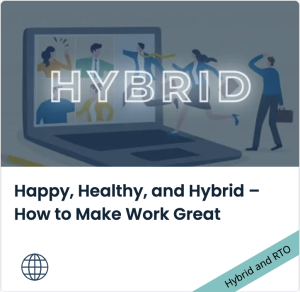A recent study found that return to office is having a negative impact on sense of belonging in employees. What can leaders do to reverse this trend?
Many companies called knowledge workers back to the office earlier this Spring.
Where are people working? Future Forum, April 2022

The transition is proving difficult:
1. Employee experience scores dropped to near-record lows.
Work stress and anxiety score dropped 28%, work-life balance score dropped 17%.
🤔Interestingly, the sense of belonging dropped 10%+ despite socialization opportunities offered by the office environment.
2. Executives are staying home.
Non-executives are 2X as likely as executives (35% vs. 19%) to be working from the office five days a week.
3. Attrition risks are rising.
Employees without schedule flexibility are 2.6X more likely to look for a new job in the coming year.
4. Employees craving flexibility.
79% of knowledge workers want location flexibility. 94% of knowledge workers want schedule flexibility.
Companies are reacting by relaxing the requirements to work models.
Nicholas Bloom, a Stanford University economist, sees some firms relenting from in-office work 5 days a week to the typical hybrid 3-2 model, while other firms moving from 3-2 to 2-3 or 2-2-1 hybrid models (where the 1 is a choice, but in practice is 2-3).
What else can managers do to help their teams and increase sense of belonging?
As we learn more, we have an opportunity to create hybrid workplaces that are better for everyone.
However, “hybrid” requires managers to evolve how they lead and teams to evolve how they work. The Teamraderie “hybrid” experience with Glenn Fajardo can help your team:

Often, in hybrid work, people in the room feel that remote colleagues are disengaged. And remote team members feel excluded.
Meet Stanford University’s Glenn Fajardo, who will help your team shift from blame to collaboration, notice what people feel and why, and adjust their mindset and behaviors.
With Glenn’s guidance, do the exercises that will equip your team for the new era of work.
Teamraderie Experiences can be explored and booked online via Teamraderie experience finder. If you are seeking a personalized recommendation, reach out to us at team@teamraderie.com.

